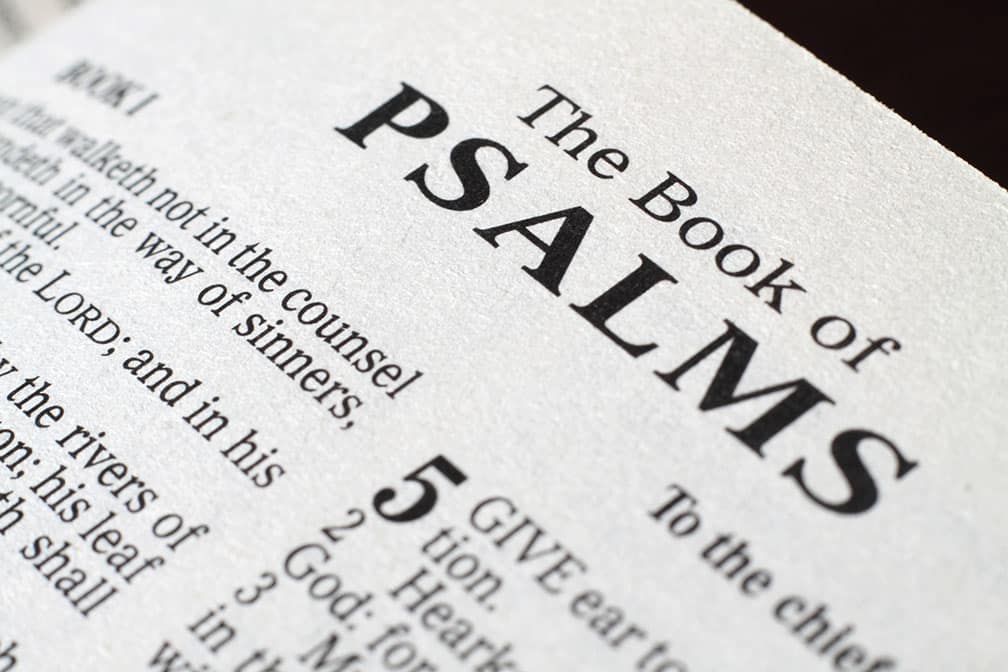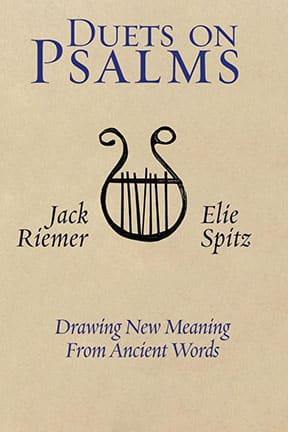 princessdlaf/Getty Images
princessdlaf/Getty Images Poetry is one of humankind’s most enduring and significant art forms. The only problem is that most of humankind doesn’t seem to care.
According to a survey from the National Endowment for the Arts, just 9.2% of American adults read any poetry in 2022. Compare that with 53% who read prose.
Religious culture, however, has a different relationship with poetry. It is often said that the book of Psalms — the Tanakh’s collection of liturgical poems — is the “best loved” book of the Hebrew canon—the breakout hit of the ancient world that accompanies the soul of Jew and Christian alike in times of trouble or joy.
Religious Jews are in near constant contact with the book of Psalms. They are a significant part of every prayer service. They are prescribed for moments of anguish and moments of joy. They are a response to life events or merely a way of passing time on the bus, as any commuter in Jerusalem has observed.
Many—myself included—have long struggled to connect with Psalms. It is too repetitive. It is too self-assured. The Psalmist (as the anonymous author is often called) is triumphalist and vengeful when he’s in a good mood.
This is true, but many — myself included — have long struggled to connect with Psalms. It is too repetitive. It is too self-assured. The Psalmist (as the anonymous author is often called) is triumphalist and vengeful when he’s in a good mood. When he’s feeling low, he writes paranoid screeds about “enemies” and obsesses over the punishment and humiliation of evildoers.
Sure, there are beautiful lines interspersed, but they have never been enough for me to love Judaism’s “best loved” book.
 And so, when I was asked to review “Duets on Psalms: Drawing New Meaning From Ancient Words” by Rabbis Jack Riemer and Elie Spitz, I leapt at the opportunity, hoping that I would find the authors’ love of Psalms contagious. After all, I’m a rabbinical student. I am someone whose job it will be to help people connect with Torah. How can it be that I am unable to love our most lovable text?
And so, when I was asked to review “Duets on Psalms: Drawing New Meaning From Ancient Words” by Rabbis Jack Riemer and Elie Spitz, I leapt at the opportunity, hoping that I would find the authors’ love of Psalms contagious. After all, I’m a rabbinical student. I am someone whose job it will be to help people connect with Torah. How can it be that I am unable to love our most lovable text?
Their book is a work of scholarship and a labor of love. The authors select 14 out of the 150 psalms to analyze. They both offer their own interpretations, hence “duets.” Perhaps these are also “duets” in that the authors seem to riff on the psalms and off one another. Rather than strictly analyzing each psalm according to a predefined set of literary or religious criteria, they follow their instincts and improvise, moving seamlessly between religious commentary, personal reflection, and historical context.
Take their treatment of Psalm 35, which focuses entirely on its role in inspiring the founding fathers at the Continental Congress in 1774.
Or take their treatment of Psalm 145, known popularly as Ashrei. It is said by the sages of the Talmud that one who recites Ashrei three times a day is guaranteed of his or her place in the world-to-come. I don’t tend to take such Talmudic pronouncements about the afterlife literally, but I have long recognized this as a good deal — life eternal for an unbeatably low price.
Hence, in my own version of Pascal’s wager, I have been punctilious about never missing an Ashrei. This has made the recitation of this particular psalm into a dreadful chore, however, something I do by rote to get my world-to-come points and then move on.
In “Duets on Psalms,” Rabbi Riemer helps me to repair this relationship with the text: “We think that it means that if you say the Ashrei sincerely you will be admitted into the world to come. But that is not what it says. It says that whoever says the Ashrei IS in the world to come. For these few minutes, while we say these words, we are in the world to come. And so it is wrong to rattle off these words quickly as so many of us do.”
I was also moved by their discussion of Psalm 137. Psalm 137, known commonly as “By the Rivers of Babylon,” is a poignant portrayal of the pain of exile, but its final line is a gruesome expression of bitterness and violence.
“Fair Babylon, you predator,
a blessing on him who repays you in kind
what you have inflicted on us;
a blessing on him who seizes your babies
and dashes them against the rocks!”
The book’s discussion of this psalm centers almost entirely on this last line. “The last part is, to put it mildly, not loved at all. There are some people, both Jews and Christians, who abhor this part of the psalm. It is considered by some to be the most offensive passage in the entire Bible.”
Hence, the authors grant us permission to not love every line of Psalms, even while they guide towards deeper understanding. They quote a preacher named Samuel Spurgeon, who wrote:
“Anyone who has stood by helplessly and watched his wife raped before his eyes, and anyone who has stood by helplessly and seen his children murdered before his eyes, and anyone who has seen the sanctuary that he considers to be most holy reduced to ashes before his eyes has a right to criticize this passage. The rest of us should keep a respectful silence.”
The impact of reading “Duets on Psalms” has been twofold. First, their commentaries have made these ancient poems light up for me with new significance and associations. Second, they have reassured me that it’s not an aesthetic or a spiritual failing on my part that I have thus far been unable to love Judaism’s “best loved” book.
As Rabbi Spitz writes in the introduction, “I only recently began to appreciate their artistry, origins, and richness of content. What I found engaged my heart and mind. I fell in love with Psalms and I want to show you why.”
Rabbi Riemer then writes: “We can somehow manage without knowing the names and dates of the authors and without knowing the musical notes. But what makes the psalms so difficult for us to understand is that they were written by people who felt a deep and a personal relationship to God, and we do not have this awareness.”
The book thus serves as a bridge for those who are either new to the psalms or who, like me, are deeply familiar with the psalms but have been looking for a way to connect on a deeper spiritual and emotional level.
The book thus serves as a bridge for those who are either new to the psalms or who, like me, are deeply familiar with the psalms but have been looking for a way to connect on a deeper spiritual and emotional level.
I cannot say that you’ll soon see me on the Jerusalem bus mouthing Psalms quietly as we lurch through traffic, but my relationship with this part of our scripture has been altered and deepened, and this is more than enough. Selah.
Matthew Schultz is a Jewish Journal columnist and rabbinical student at Hebrew College. He is the author of the essay collection “What Came Before” (Tupelo, 2020) and lives in Boston and Jerusalem.























 More news and opinions than at a Shabbat dinner, right in your inbox.
More news and opinions than at a Shabbat dinner, right in your inbox.